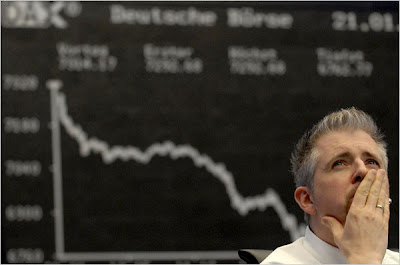
The financial crisis is now a global economic crisis, which is rapidly becoming an unemployment crisis.
• Global trade is forecast to shrink in 2009 for the first time since 1982
• Foreign investment and short-term credit are drying up
• Developing country exports are falling; large amounts of capital have been withdrawn
Many developing countries face sharply tighter credit and higher interest rates.
• GDP growth in 2009 in developing countries is expected to fall to 4.5% from 7.9 in 2007
• Private capital flows are expected to drop from $1 trillion in 2007 to $530 billion in 2009
• Remittances that workers send to home countries are projected to decline
Before the financial crisis hit, many countries were already suffering a food and fuel crisis.
• Between 130 and 155 million people have fallen into extreme poverty, according to Bank estimates
• Another 44 million children are malnourished
• Measures to offset rising prices have left many countries fiscally vulnerable
Poor and middle-income countries need help to limit the damage and prepare for recovery.
• Drawing on international assistance where necessary
• Investing in infrastructure and safety nets
• Continuing to improve their business climate and attract investors
Global problems call for multilateral solutions.
• Leaders need to craft policies that bring more countries into the economic mainstream
• Opportunities and responsibilities for the new global economy must be shared
• The international community needs to look beyond financial rescue to the human side of the crisis
Source: World Bank (2009)

No comments:
Post a Comment